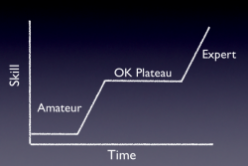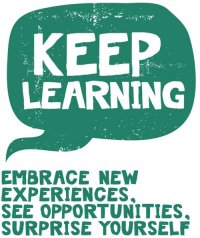So, you're one of those people who doesn’t like studying?
Hate hitting the books? Well, then this post might not be for you! But don’t worry, life is full of both types, those who love and those who hate studying, so you’ll definitely find your match.
But really, what drives us to study?
For some, the answer is quick and straightforward: "I study because I want a good job and to make lots of money."
That seems like a reasonable answer, but it's a bit too simplistic. After all, not everyone who studies makes a lot of money, and the reverse is also true, not everyone who earns a lot of money has studied extensively.
Limiting our motivation for studying to just getting a well-paid job is short-sighted. It makes me wonder if people who think this way aren’t seeing the bigger picture.
The real reason
We study for the simple joy of learning. Of course, by learning more and becoming increasingly specialized in a subject, we might benefit from better job opportunities or have a breakthrough idea that brings us wealth. But I believe we shouldn’t let that be our sole motivation. If we don’t achieve those material goals, we might become frustrated, stop studying, and settle into a mindset where we're just "good enough" — what’s known as the OK Plateau.
But what is this Ok Plateau?
It’s the point where we stop pushing ourselves to improve. It’s when we feel like we know enough about a subject and no longer strive to get better. Studying is about both theory and practice, constantly seeking improvement and avoiding that trap of the OK Plateau.

Q: Can you explain the "OK Plateau?"
A: The OK Plateau is that place we all get to where we just stop getting better at something. Take typing, for example. You might type and type and type all day long, but once you reach A Certain level, you just never get appreciably faster at it. That's because it's Become automatic. You've moved it to the back of your mind's filing cabinet. If you want to become a faster typer, it's possible, of course. But you've got to bring the task back under your conscious control. You've got to push yourself past where you're comfortable. You have to watch yourself fail and learn from your mistakes. That's the way to get better at anything. And it's how I improved my memory. (Joshua Foer)
Moonwalking With Einstein: The Art and Science of Remembering Everything
Therefore, we must believe that studying for short-term goals (not just long-term ones like making money) is essential to learn more and become better. By embracing this mindset, we can change not only how we think about studying but also how we perceive ourselves.
Where to start?
Great! You've decided to take this approach, but how do you begin?
The possibilities are endless, but I believe the best way to start is as follows:
- Identify topics or subjects you're passionate about.
- Always seek out information related to those topics.
- Find experts or leaders in the field and follow their work as much as possible.
- Join groups where you can interact with others, as these can be excellent sources of information.
- And most importantly, even if you're not interested in a particular topic, take the time to learn about it (it might open your eyes to new ideas).
Following this approach, I discovered a really cool site called P2PU (https://p2pu.org/) that lets you test your knowledge on various subjects. It might even open your mind to topics you never considered. Check it out (you might be surprised)!

